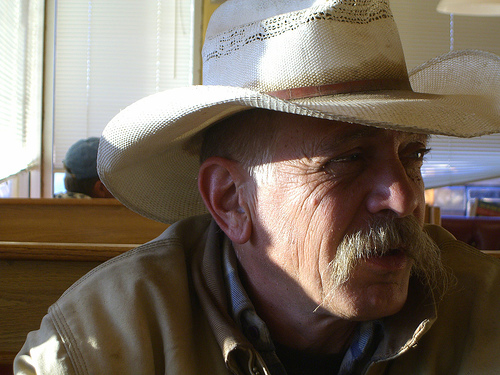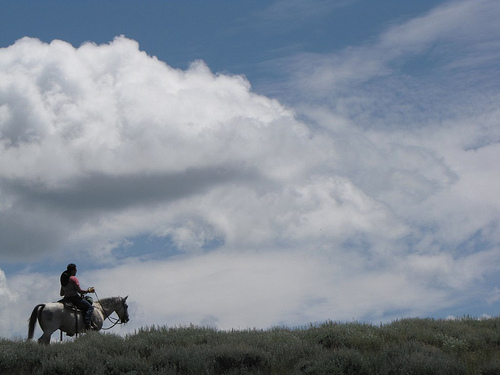Private Lands, the New Conservation Frontier
By: Amos S. Eno
Posted on:04/04/2011 Updated:04/05/2011Private landowners on America’s working land - farm, ranch, or forest - are changing. They have new needs and we need a new approach to help them.
As the great grand-nephew of Gifford Pinchot, father of the US Forest Service, I’m acutely aware that Pinchot’s vision of a conservationist is embodied in the rancher, the farmer, and the private forester stewarding and renewing the bounty of his or her land. Today, at the University of Idaho, I will be making a presentation on my favorite topic: the need to “check our conservation compass, reorient, and shift from a public to private land conservation investment portfolio.”
Pinchot, father of the US Forest Service, I’m acutely aware that Pinchot’s vision of a conservationist is embodied in the rancher, the farmer, and the private forester stewarding and renewing the bounty of his or her land. Today, at the University of Idaho, I will be making a presentation on my favorite topic: the need to “check our conservation compass, reorient, and shift from a public to private land conservation investment portfolio.”
You can attend the the seminar virtually by downloading my University of Idaho presentation, which includes text of the speech as well as illustrations from my powerpoint, or read our press release.
A Radical Change is Coming
I believe that the federal government, despite its history of creating a system of parks and nature reserves admired around the world, needs to radically change its focus to achieve conservation. The feds are broke and states are broke. Agencies have a $25 billion backlog of operations and maintenance funding, and for the past several years Forest Service expenditures to fight wildfires have dwarfed their management and research budget!
Meanwhile our 13 million or so private landowners are on average 60 years of age or older, and their combined ranches, farms and private forests represent 70% of the US lower 48 states’ landscape. We face the greatest turnover of land in U.S. history within the next two decades.
Cogs and Wheels
Where does that leave us? It leaves us working with what Aldo Leopold called the small ‘cogs and wheels’ of the countryside. I would argue that along with the native grasses, ephemeral streams, and top predators, those small cogs and wheels include the private landowners who have tremendous power to influence ecosystems.
Furthermore, I believe that maintaining our human cultural heritage is as important, if not more so, than the application of science and technology to conservation. I’ve met so many landowners who love their land, it is part of who they are. If we allow that culture to die, I guarantee the health of the land will go with it.
If you agree with this, then I invite you to help yourself to the use of my powerpoint presentation on this subject. You can download the powerpoint here (10.7 MB PPSX file), or you can download it and read it as a pdf (4.7 MB PDF). This is a message that needs to be heard. If you use any of my slides, I ask only that you credit the Resources First Foundation.
The Rural - Urban Face to Face
If you are a city-dw eller and care about the land - our natural resources, wildlife habitat, and bucolic working landscapes - then please consider this. Urban people everywhere need more of a basic understanding of their connections to the local ecology, the part that extends beyond the urban services boundary. Consider the attitude of awe and respect many of us tend to have for America’s original land stewards, the Native Americans. Is it possible that, rather than being seen as the bad guys, the vast majority of today’s private landowners deserve that same respect?
eller and care about the land - our natural resources, wildlife habitat, and bucolic working landscapes - then please consider this. Urban people everywhere need more of a basic understanding of their connections to the local ecology, the part that extends beyond the urban services boundary. Consider the attitude of awe and respect many of us tend to have for America’s original land stewards, the Native Americans. Is it possible that, rather than being seen as the bad guys, the vast majority of today’s private landowners deserve that same respect?
If you have the opportunity, get to know someone who lives on the land. Listen. Things will only change for the better if the people living in cities understand and support land stewardship to the same extent they now support recycling and green energy.
 Sign In
Sign In
 Sign In
Sign In
